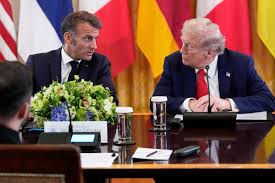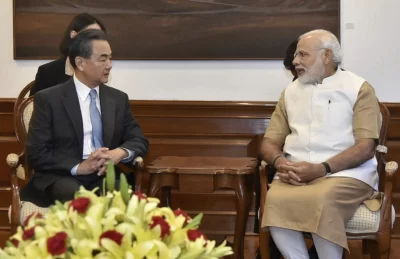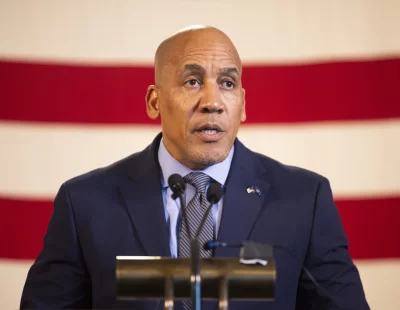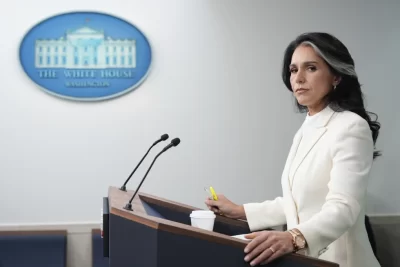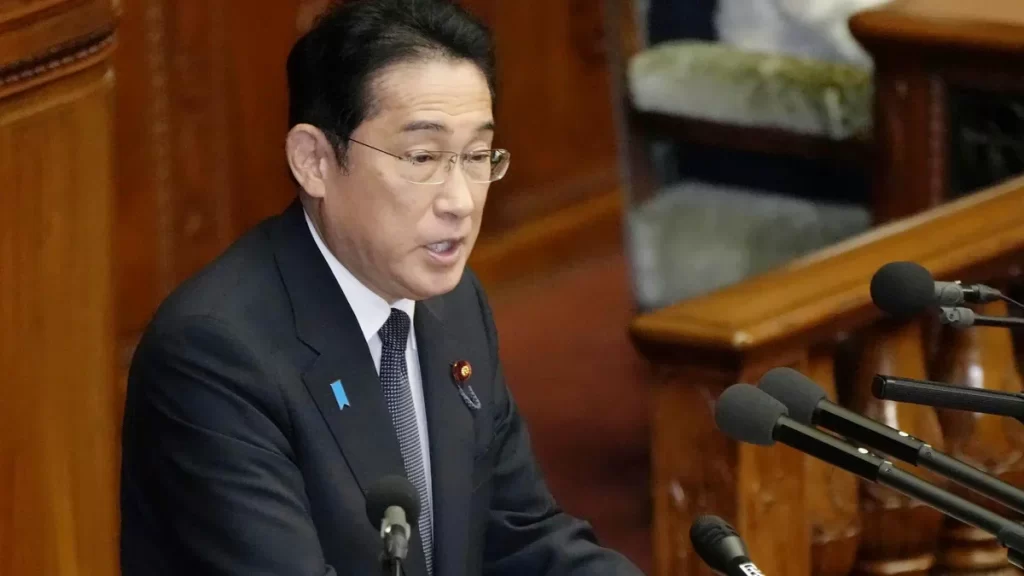
Japan’s Prime Minister Fumio Kishida said Monday he is preparing to take bold economic measures, including an income tax cut for households hit by inflation and tax breaks for companies to promote investment, in what’s seen as a move to lift his dwindling public support.
In his speech to start a new Parliamentary session, Kishida said it was time to shift from an economy of low cost, low wages and cost-cutting to one backed by growth led by sustainable wage hikes and active investment.
“I’m determined to take unprecedentedly bold measures,” Kishida said, pledging an intensive effort to achieve stronger supply capability in about three years. “I will put more emphasis on the economy than on anything else.”
He said he is determined to help people ride out the impact of soaring prices for food, utilities and other costs that have exceeded their salary increases, by implementing income tax cuts. He also pledged to introduce corporate tax incentives to promote wage increases, investment and optimization.
Previously, Kishida had been considered reluctant to cut taxes because his government must find the funds to double Japan’s defense budget within five years as planned while also trying to counter the impact of Japan’s low birth rate and rapidly declining population.
His Liberal Democratic Party secured a parliamentary seat representing Nagasaki in Sunday’s vote but lost in a combined district in Kochi and Tokushima to a candidate backed by the main opposition Constitutional Democratic Party of Japan.
“The results clearly show that many voters are dissatisfied by the government’s delayed economic measures to tackle rising prices,” said Jun Azumi, a senior CDPJ lawmaker.
Kishida told reporters that he takes the results seriously and that he will tackle important policies one by one. “Now is the time for me to focus on that, and I’m not thinking about anything else,” Kishida said, denying that his tax cut proposal was related to elections.
The tax cuts would be part of a new economic stimulus package he plans to announce by the end of the month.
On the diplomatic front, Kishida in his speech reiterated the need to strengthen Japan’s military, given conflicts that are underway elsewhere, such as Russia’s invasion of Ukraine and the war between Israel and Gaza’s militant Hamas rulers.
Kishida also urged China to immediately lift its ban on Japanese seafood imports imposed in August when the tsunami-wrecked Fukushima Daiichi nuclear plant started releasing the treated radioactive wastewater into the sea. The government is working to find new markets for the Japanese fishing industry that are less reliant on China, Kishida said.

